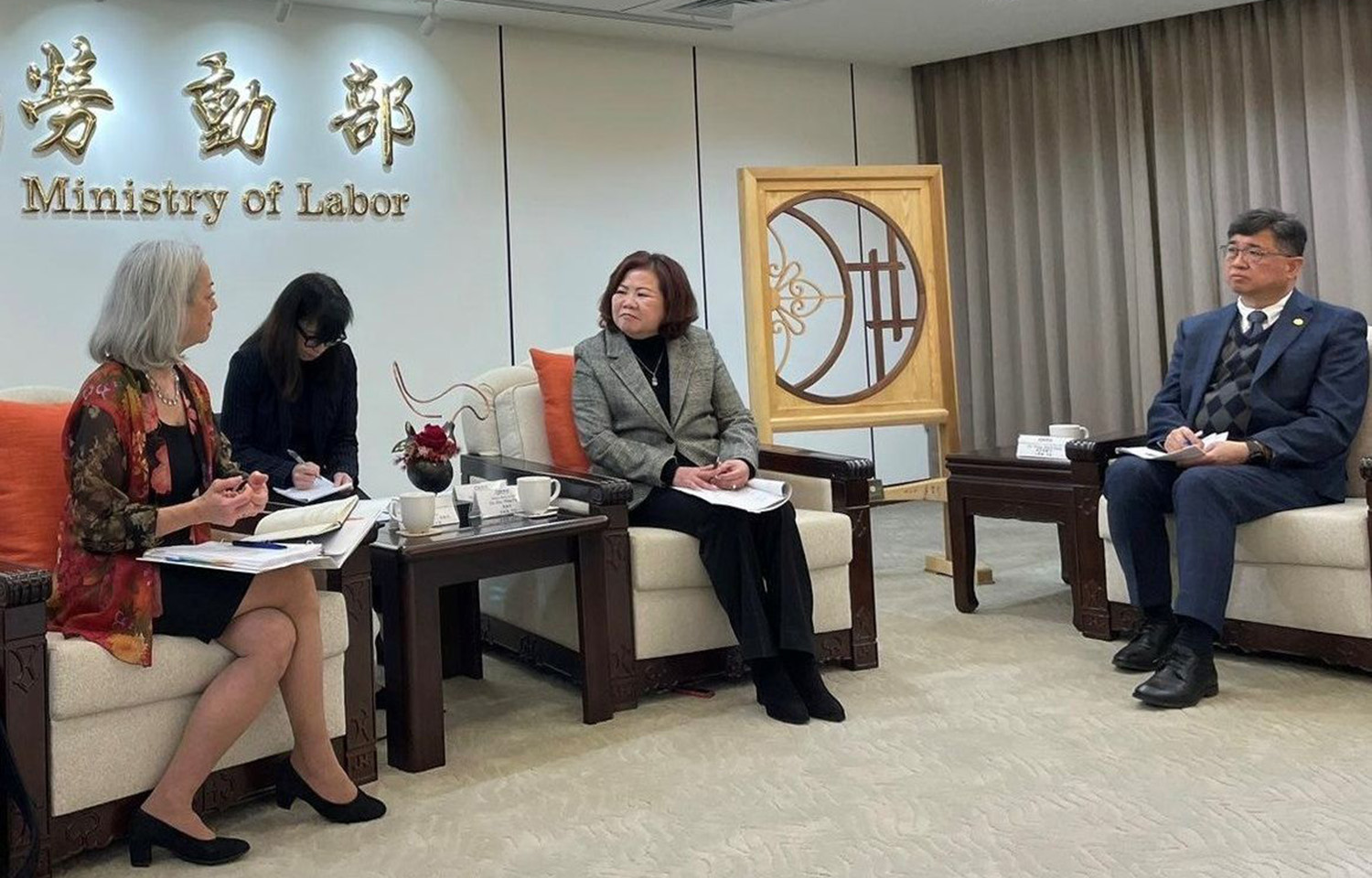The Taiwanese fishing industry hosted a delegation led by U.S. Department of Labor Deputy Undersecretary Thea Lee to “gain more practical understanding” of Taiwan's efforts to enhance the rights of migrant crew members onboard its distant-water fishing vessels.
During a visit from 26 February to 1 March, Lee took part in workshops and meetings to address labor issues, and she met with Taiwan’s ministry of labor, “where she emphasized the U.S. government’s prioritization of workers’ rights globally, calling for Taiwan’s commitment to improve labor rights compliance,” according to the U.S. Department of Labor’s Bureau of International Labor Affairs.
Taiwan was listed in the Labor Department’s 2022 List of Goods Produced by Child Labor or Forced Labor and in the U.S. State Department’s 2022 Trafficking in Persons Report (TIP) report, alleging its fleet engages in labor transgressions and illegal fishing. The country has the second-largest distant-water fishing fleet in the world, with an estimated 1,100 vessels employing an estimated 35,000 migrant workers.
“Deputy Undersecretary Lee and her colleagues observed the labor inspections conducted by TFA on distant-water fishing vessels, and communicated with local fisheries associations, migrant fishers organizations, civil groups, and relevant ministries,” Taiwan Tuna Association Spokesperson Tony Lin told SeafoodSource. “[Lee] recognized Taiwan's trans-ministry efforts in improving human rights of migrant fishers and indicated that both sides should continue to bilaterally cooperate in order to address the issues and challenges of labor rights in the future.”
Taiwan’s fishing industry has faced a campaign from the Global Labor Justice – International Labor Rights Forum (GLJ-ILRF), which is pushing for the installation of Wi-Fi onboard all of Taiwan’s distant-water fishing vessels. While the Lin said allowing unlimited crew access to Wi-Fi could create potential management issues and safety hazards, he said a pilot project is underway testing it out.
“We will also cooperate with the Indonesian Fishermen Workers Union [SPPI] to send the first batch of crew members to work on fishing vessels and promote the four-year plan for distant-water fishery Wi-Fi to allow crew members to work with peace of mind,” Lin said.
Additionally, Lin said his organization is working to persuade Taiwanese vessel owners to purchase food preferred by Indonesian crew members this year, “so that the crew will feel less homesick.”
In 2022, GLJ-ILRF filed suit against San Diego, California, U.S.A.-based Bumble Bee Seafood, a subsidiary of Taiwan-based Fong Chun Formosa Fishery Company (FCF), for touting its “fair and safe supply chain,” which GLI-ILRF said is a “false and deceptive” marketing claim.
The Taiwan Tuna Association has been critical of the lawsuit.
“It is a pity that those NGOs have been advocating human rights without tabling a feasible measure or complete policy, while taking measures to discourage the efforts, which worries me and the Taiwan fishing industry,” Lin said in April 2022, soon after the suit was filed.








